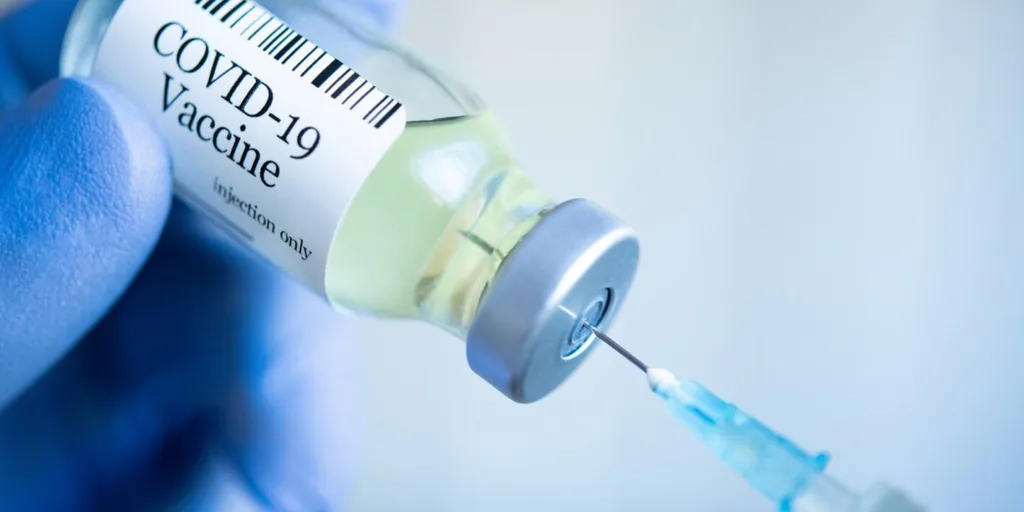The executive director of the National Primary Health Care Development Agency (NPHCDA), Faisal Shuaib, said contrary to this claim, the UK Government recognises all vaccines administered in Nigeria.
Faisal made the clarification in Abuja on Tuesday, September 21, at the weekly press briefings on COVID-19 vaccination campaign.
He said concerns have been raised since the UK Government released a new travel advisory which would take effect from October 4, 2021.
According to the new travel advisory, there would be classification of countries from green, amber and red to just red and green list with the possibility of countries on the amber divide falling either under green or red list.
However, Shuaib said that while there are concerns that this might affect Nigeria, the Federal Government has had discussions with officials of the UK Government.
Shuaib said: “Without prejudice to the information yet to be released, we have been assured that Nigeria will maintain the status quo.”
“That is to say Nigeria will not be on the red list. The UK Government have also stated that they have no issues with the vaccines used in Nigeria,” Shuaib said.
Various COVID-19 Vaccines Administered in Nigeria
The NPHCDA boss said the Oxford/AstraZeneca vaccine, also known as COVISHIELD that is used in Nigeria was approved by the UK regulatory body (MHRA), other stringent regulatory authorities and the World Health Organization.
“So, the UK Government does recognize the vaccines used in Nigeria,” Shuaib added.
He also assured Nigerians that all the vaccines used in Nigeria are donations from the UK Government, the Canadian Government and the United States through the COVAX facility.
According to him, what the UK is doing a phased approach to deal with the high demand and volume of people arriving their country.
He said it is important to stress that this phased approach is still under review by the UK Government and they would be providing updates regularly.
“For Nigeria at the moment, there is no change in the guidelines for entry of Nigerians into the UK. A UK citizen on entry into Nigeria regardless of the vaccination status, is made to do a PCR test and isolated for 7 days and same applies for Nigerians entering the UK, you are also required to do PCR test and isolate for a few days,” Shuaib noted.
“This is called the principle of reciprocity in the diplomatic circle,” he said.
He also said that the number of people immunized is one of the factors that most countries assess when making travel restrictions.
“This is why we would continue to encourage all eligible Nigerians to visit the nearest designated health facility to get vaccinated.”
“We are beginning to see not just the UK Government but other developed Countries also instituting more stringent COVID-19 guidelines for travel and public spaces,” he said.
He warned that as the pandemic evolves, there might be a point where countries would not allow the entry of unvaccinated individuals.
WHO Reaction to Restrictions by Countries
In addition, the country representative for the World Health Organisation (WHO), Walter Mulombo, said the organisation does not recommend making proof of COVID-19 vaccination a mandatory condition for entry to or exit from a country.
Mulombo however said countries can consider lifting testing and/or quarantine requirements for international travellers who have been fully vaccinated.
He said although fully vaccinated individuals or those who were previously infected may still be able to be re-infected and transmit the virus, growing evidence shows that this risk is substantially lowered as they present a lowered risk to others in the country they are entering.
Mulombo said these individuals are at lower risk of developing disease and consequently do not impose an increased strain on health systems in the destination country.
He said: “WHO’s recommendation that entry should not be restricted to those who are vaccinated still stands: proof of vaccination should not be a pre-requisite for travel and may deepen inequities, particularly while the vaccines continue to be in such short supply.”
“No region or country should face more restrictions because they are unable to access vaccines,” Mulombo added.
He further urged all countries to recall and respect the principles of the International Health Regulations (IHR) that vaccines must be approved by WHO.
He said these vaccines must be of suitable quality and universally available before they can be considered as a prerequisite for travel.
Lafiya360 had reported that 1.6 million eligible people have been fully vaccinated in Nigeria as of Monday, September 13.
These individuals are said to have received the complete doses of the Oxford AstraZeneca COVID-19 vaccines.


